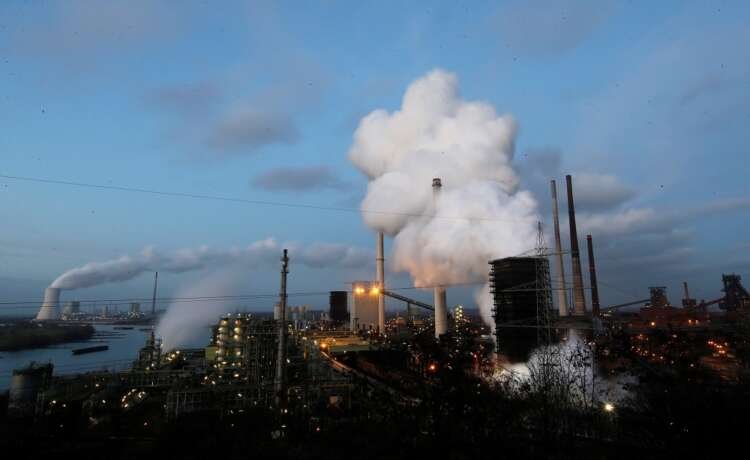EU ministers seek deals on climate laws as economy woes test green pledges


By Kate Abnett
LUXEMBOURG (Reuters) -European Union ministers began talks on Monday to approve new laws to fight climate change, but diplomatic sources said economic pressures could prompt efforts to water down some of the EU’s most ambitious proposals.
EU energy ministers will also discuss options to collectively reduce demand for natural gas as the European Commission prepares to present a plan next month to coordinate steps for further cuts to supply from Russia.
“For industry we have to present a coordinated approach,” EU energy commissioner Kadri Simson said on her arrival at the meeting in Luxembourg, referring to measures to curb gas demand, adding that citizens would be “protected consumers” shielded from such curbs.
Energy ministers meet on Monday followed by environment ministers the following day.
They aim to agree common positions on proposed laws to meet a 2030 target to cut net emissions by 55% from 1990 levels.
The laws would expand renewable energy, revamp the EU carbon market and ban sales of new cars running on fossil fuels from 2035.
Brussels says the energy supply crisis this year caused by Russia’s invasion of Ukraine means the 27 EU countries should move even faster to wean themselves off of fossil fuels.
But the threat of an economic slump from surging energy prices has made some countries more cautious about swift changes they fear might bring more disruption.
Energy ministers are expected to back targets proposed by the EU Commission last year to derive 40% of energy from renewable sources and cut energy consumption 9% against expected levels by 2030.
Brussels raised those goals to 45% and 13% last month, in a bid to end countries’ reliance on Russian fossil fuels faster.
Ministers are expected to approve the original proposals, and put off considering the upgraded versions until later this year when they negotiate the final laws with the EU parliament, according to diplomats.
Renewables accounted for around 22% of EU energy in 2020.
Countries are considering weakening other parts of the laws, according to deals drafted ahead of the ministers’ meeting seen by Reuters.
The draft agreements would make some targets voluntary rather than legally binding, including a target to reduce primary energy consumption this decade.
Countries are also considering lowering a target for half of hydrogen used by industry to come from renewable sources by 2030.
Some diplomats raised concerns that the changes, if approved, would cause the EU to miss its climate goals. But others said they expected countries to preserve the core elements needed to meet emissions targets – and that without some concessions, deals on the laws would struggle to win majority support among countries.
“It’s a very, very delicate balance which has to be struck,” one diplomat said.
(Reporting by Kate Abnett; editing by Peter Graff and Jason Neely)
Climate change refers to significant changes in global temperatures and weather patterns over time, primarily driven by human activities such as burning fossil fuels, deforestation, and industrial processes.
Renewable energy sources are energy types that are replenished naturally, such as solar, wind, hydro, and geothermal energy, which can help reduce reliance on fossil fuels.
The European Commission is the executive branch of the European Union responsible for proposing legislation, implementing decisions, and managing the day-to-day operations of the EU.
Explore more articles in the Top Stories category











